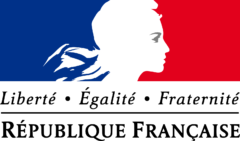TEFIBIO : Assessment of the first trials and test of the new model
TEFIBIO aims to define, test and promote fishing nets called "sustainable". Indeed, these new prototypes of fishing nets will try to take into account an economic dimension (recyclable and biosourced product) and an environmental dimension (biodegradability in the long term in the marine environment).
On July 15, Jérémy Devogel, skipper of the Néreïdes II, was carrying on board nearly 3,000 m of biodegradable, biosourced, recyclable net without the spread of microplastic.
In June 2020, he was already testing the first prototype: 1,000 m of the new material had been inserted into a gillnet. This is the net - composed of three superimposed networks - used by the filleters, fishermen who practice small coastal fishing.
The experimentation of the new net in real fishing conditions begins, in parallel with recycling tests of the used prototype and a marketing study to tend to the perpetuation and generalization of the project.
The continuation of a promising experiment
The 10% of biodegradable net carried aboard and used during the summer season 2020 fished in a way rather similar to the conventional net. Their deterioration over the season also allowed for use by the gillnetter until the end of the fishing season, just like the conventional net.
The second prototype in turn initiates a phase of tests at sea in Boulogne-sur-Mer during the summer season, then in Fécamp during the winter season. The mechanical properties of the net, its structure and its color have been adjusted, in order to get closer to the classic plastic net, in terms of fishing capacity and resistance. Nearly 30% of the fishing gear will be biodegradable during these two years of experimentation, which represents 3,000 m of net.
Two major environmental objectives
A gillnetter would use 3 tons of nylon nets each year, which represents a very large quantity of waste, the recycling of which is currently impossible. However, the prototype on which the Marine Natural Park has worked should be possible to compost: the project will therefore lead to a very significant improvement in the management of waste related to fishing activities.
But that is not all, a piece of net lost in the sea represents a risk for the environment. Nylon nets have a very long degradation time in the sea. If they end up decomposing, it is in the form of micro-plastics. The objective of the Marine Natural Park and FROM Nord is to design a net that can be used for one year: the fishermen renew their equipment every year. After that, this net - if it were to be lost - would decompose more quickly and with less environmental impact than the nylon net.
A European project to reduce the environmental impact of fishing through innovation
The Parc naturel marin des estuaires picards et de la mer d'Opale, in partnership with the FROM Nord producer organization, launched the TEFIBIO project in early 2021. It is funded to the tune of 750,000 of which 80% come from measure 39 of the European Fund for Maritime Affairs and Fisheries. France Filière Pêche provides support by co-financing the project.
The companies Seabird, Nautique Conseil, Take a Waste and Guillaume Dupont Ingénierie Navale bring their expertise in terms of innovation and technical implementation to the project leader, the Marine Natural Park, and to FROM Nord.




